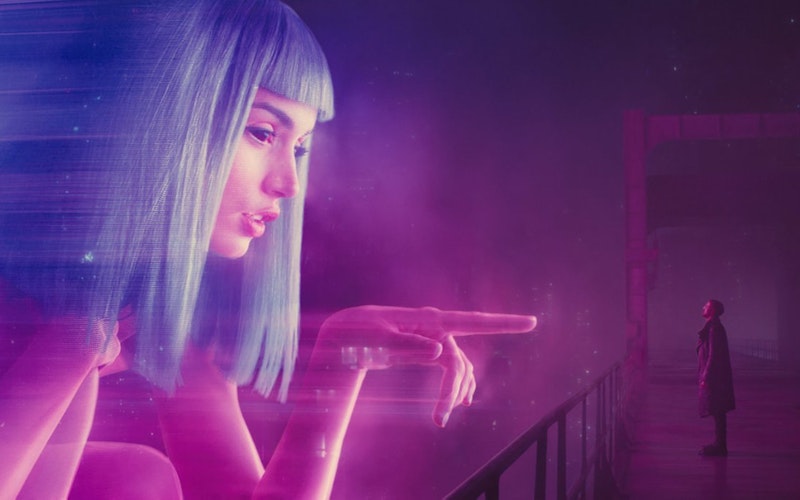
Movies
Blade Runner 2049 and Our Created Capacity for Awe
The awe-inspiring visuals of Blade Runner 2049 paint more than a pretty picture. They also suggest, alongside the story, that the very expression of awe is a uniquely human quality. Might the movie be right—that if you’re capable of expressing wonder, you have a soul?
Blade Runner 2049, as its title suggests, asks this question in an imagined future. A sequel to 1982’s Blade Runner, in which Harrison Ford played a LAPD detective charged with tracking down renegade robots known as replicants, Blade Runner 2049 centers on a replicant himself: K (Ryan Gosling), a next-generation robot, controlled by the LAPD and assigned to hunt his own kind.
Director Denis Villeneuve (Sicario, Arrival) ably recreates the 1982 film’s striking visual scheme, while also taking it a few steps further. This future Los Angeles is the familiar, chilly, technological nightmare (techmare?) from before, dominated by giant neon signs, hologram advertisements, and endless precipitation. But we also move outside of the city to explore new locales: an endless trash dump where children scavenge for scraps like skittering beetles; an abandoned Las Vegas where Agent Orange seems to hover in the air; and a gray, barren “farm” with a single dead tree, which stands like the lone marker of some long-lost forest.
Blade Runner 2049 evokes awe in both wonderful and terrible ways, often both at once.
Blade Runner 2049 opens at this last location, where K has tracked down a renegade replicant named Sapper Morton (Dave Bautista). Sapper says that it’s easy for K to “retire” fellow replicants because he’s “never seen a miracle.” K seems unfazed, but notice that after their confrontation is over, K pauses to smell the garlic that Sapper was cooking on the stove. Why would a replicant have appreciation for a creatively cooked meal?
Why do any of us experience awe, at miracles both big (birth, which becomes a Blade Runner 2049 plot point) and small (simmering garlic)? Christians would say that we were made for awe—that God created us, in part, to enjoy and be awestruck by his creation. In Psalm 65, David is, in a sense, living out his created calling when he gushes, “The whole earth is filled with awe at your wonders; where morning dawns, where evening fades, you call forth songs of joy.”
In Help, Thanks, Wow: The Three Essential Prayers, Anne Lamott writes that “awe is why we are here.” She also shares this:
Gorgeous, amazing things come into our lives when we are paying attention: mangoes, grandnieces, Bach, ponds. This happens more often when we have as little expectation as possible. If you say, “Well, that’s pretty much what I thought I’d see,” you are in trouble. At that point, you have to ask yourself why you are even here.
As a work of dystopian science fiction, Blade Runner 2049 evokes awe in both wonderful and terrible ways, often both at once. That tinted vision of Vegas, with its desolate streets and empty casinos, is like a gorgeous mausoleum. (It’s also, relatedly, where Ford makes his appearance in a reprisal of his original Blade Runner role.) Another character in the film is a replicant named Luv (Sylvia Hoeks), who sheds an awestruck tear at two distinctly different moments: one marking a death, the other a birth.
The implication is that such depths of feeling are markers of humanity. In addition to smelling garlic, K also reads Nabokov and listens to Sinatra. In his apartment, he interacts with a hologram companion (Ana de Armas), even sharing a “kiss” with her on a balcony in the rain. She looks up and watches the drips as they slide through her projected image, smiling in appreciative wonder. Does this make her human too?
The great hope of the Christian faith is that the awesomeness of this world will not slip away. We have the capacity for awe in the here and now because we anticipate the new creation, where wonders will be unceasing and our praise will be without end. Blade Runner 2049 acknowledges our unique ability to be aware of awesomeness—indeed, the movie marks it as something that makes us special, set apart from the rest of creation. “I think, therefore I am,” proposed Descartes. Yes, but I also “am” because I see.
Topics: Movies, Culture At Large, Arts & Leisure